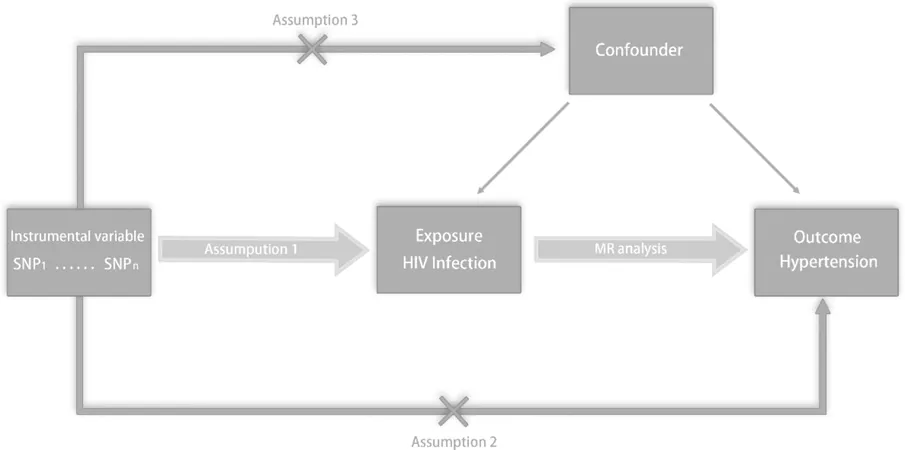
Unraveling Evolution's Mysteries to Combat Today’s Most Pressing Issues!
2024-11-24
Author: Sarah
Every year on November 24, the academic and scientific communities celebrate Evolution Day, marking the publication anniversary of Charles Darwin's revolutionary book, *On the Origin of Species*, released in 1859. This day is not merely a remembrance of a book; it symbolizes a monumental shift in our comprehension of life—a theory that intricately links all living organisms through a shared ancestral lineage.
In this year's observation of Evolution Day, we focus on a collective of dedicated researchers from the Department of Biological Sciences at the National University of Singapore (NUS) Faculty of Science. These scholars are pushing forward Darwin’s legacy, probing into the mechanisms of evolution and their profound effects on biodiversity, both regionally and globally. Their groundbreaking work is essential in tackling modern challenges, such as conservation efforts and climate change.
Learning from Insects: Unlocking Biodiversity Through Reproductive Evolution
While evolution is often encapsulated by the phrase "survival of the fittest," true evolutionary biology recognizes that 'fitness' pertains to an organism's capacity to survive and reproduce. Research in reproductive evolution—examining how mating behaviors and reproductive strategies change across species—is vital for understanding population dynamics and the emergence of new species.
Assistant Professor Nalini Puniamoorthy and her team at the Reproductive Evolution Lab (ReproLab) delve into how sexual selection influences reproductive traits, thereby affecting population differentiation and speciation. Assistant Prof Nalini explains, "Studying reproductive evolution is crucial as it illuminates how species adapt to environmental variations, which is particularly relevant amid climate change and habitat loss."
Their research encompasses both micro and macro-evolutionary processes involving diverse insects, including dung beetles, disease-carrying mosquitoes, and food waste recyclers like black soldier flies. A recent study published in the journal *Ecology and Evolution* explored how resource limitations impact dung beetle fitness in secondary rainforests, underlining the vital role these insects play in nutrient recycling and forest health.
Innovative Approaches to Sustainable Challenges
The ReproLab also investigates how insects interact with beneficial bacteria. In a recent study featured in *Animal Microbes*, their researchers discovered that gut microbes in black soldier flies help break down food waste and noted the presence of the reproductive bacterium Wolbachia in mosquitoes. This research revealed that urban and forest populations of the dengue vector Aedes albopictus carry multiple Wolbachia strains, which presents implications for vector control strategies in Singapore's diverse landscapes.
The Significance of Fruit-Eating Animals in Tropical Ecosystems
In tropical ecosystems, the relationship between plants and fruit-eating animals, or frugivores, is key in maintaining biodiversity. Astonishingly, about 90% of woody plant species in tropical forests depend on animals for seed dispersal. Assistant Professor Lim Jun Ying and his team from NUS are investigating these interactions, which are increasingly threatened by human activities such as habitat destruction and hunting.
Research published in *Global Ecology and Conservation* by Assistant Prof Lim's team examined hornbills, large-bodied birds essential for dispersing seeds of large-fruited plants. Due to threats from habitat loss and hunting, understanding the evolution of these plant-frugivore relationships is vital for predicting the long-term impacts of human activities on tropical biodiversity.
Unveiling the Hidden World of Fungi
Fungi are one of the planet's most diverse organisms with a remarkable evolutionary history spanning over a billion years. Yet, despite their ecological significance, our grasp of fungal diversity remains limited. Assistant Professor Chang Ying and her team are committed to uncovering hidden fungal diversity, particularly in marine and coastal environments.
Focusing on evolutionary history and ecological adaptations through genomic studies, the team collaborates with the One Thousand Fungal Genomes (1KFG) consortium. Their ongoing project examines digestive enzyme evolution across fungi, which holds promise for predicting the ecological roles of undiscovered fungal species.
"The insights from our research have practical applications, especially in bioremediation," remarked Asst Prof Chang, whose findings about fungal enzymes could play a crucial role in breaking down environmental pollutants.
Join the Fight Against Biodiversity Loss!
By exploring evolution, these dedicated researchers are not only honoring Darwin's legacy but are also equipping ourselves with the knowledge to confront contemporary environmental challenges. As we understand how life has evolved over billions of years, we become better prepared to safeguard the planet's rich biodiversity. Make sure to stay updated on this remarkable research to see how it might shape a more sustainable future!


 Brasil (PT)
Brasil (PT)
 Canada (EN)
Canada (EN)
 Chile (ES)
Chile (ES)
 España (ES)
España (ES)
 France (FR)
France (FR)
 Hong Kong (EN)
Hong Kong (EN)
 Italia (IT)
Italia (IT)
 日本 (JA)
日本 (JA)
 Magyarország (HU)
Magyarország (HU)
 Norge (NO)
Norge (NO)
 Polska (PL)
Polska (PL)
 Schweiz (DE)
Schweiz (DE)
 Singapore (EN)
Singapore (EN)
 Sverige (SV)
Sverige (SV)
 Suomi (FI)
Suomi (FI)
 Türkiye (TR)
Türkiye (TR)